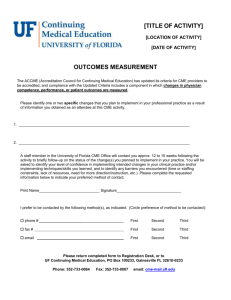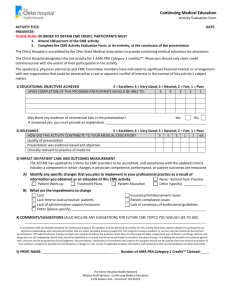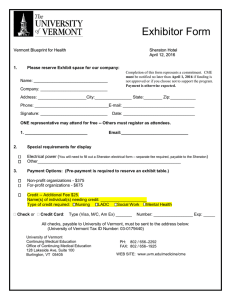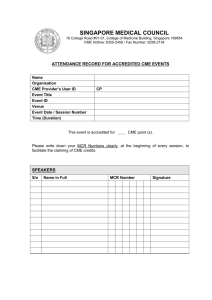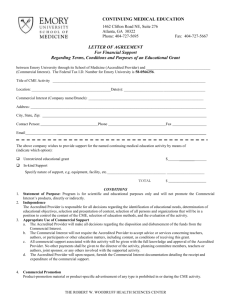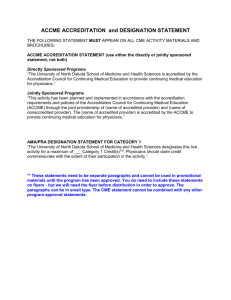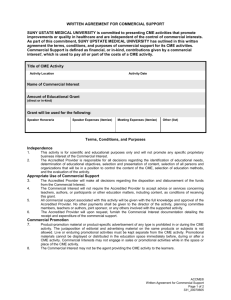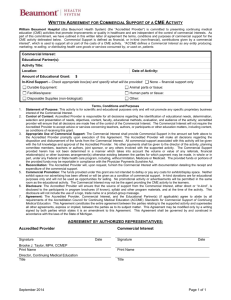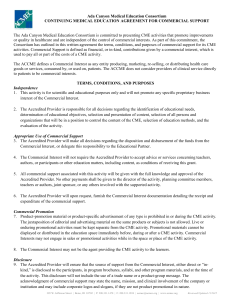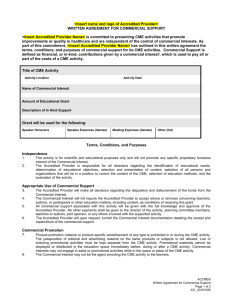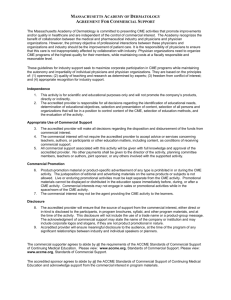Conflict of Interest Policy for CME
advertisement
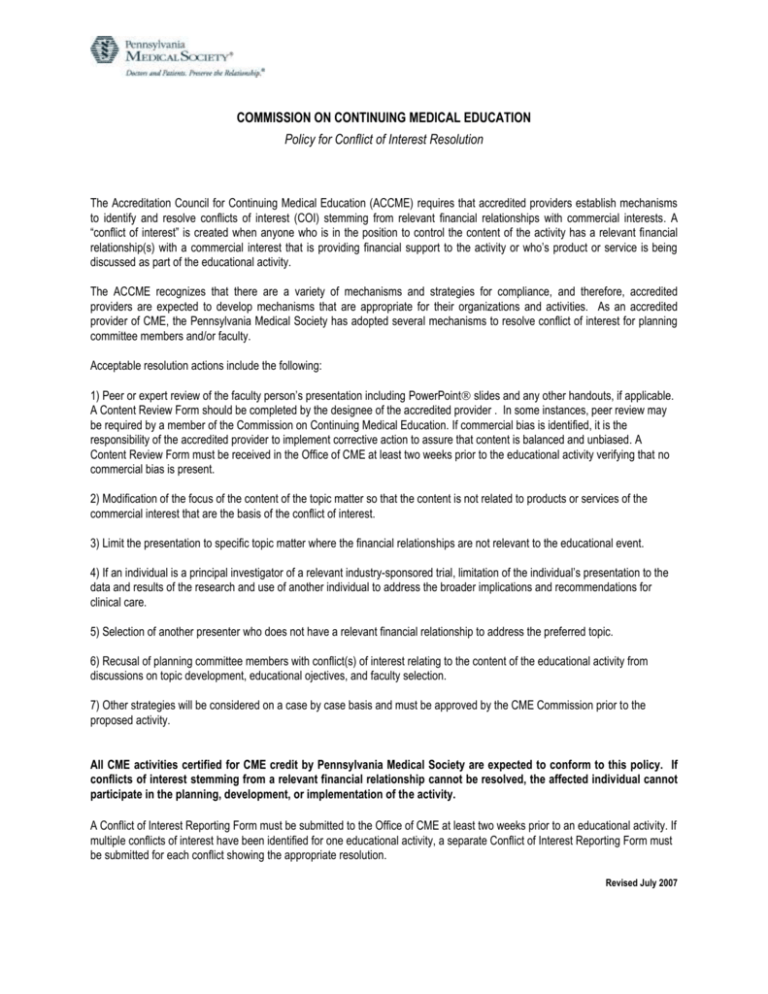
COMMISSION ON CONTINUING MEDICAL EDUCATION Policy for Conflict of Interest Resolution The Accreditation Council for Continuing Medical Education (ACCME) requires that accredited providers establish mechanisms to identify and resolve conflicts of interest (COI) stemming from relevant financial relationships with commercial interests. A “conflict of interest” is created when anyone who is in the position to control the content of the activity has a relevant financial relationship(s) with a commercial interest that is providing financial support to the activity or who’s product or service is being discussed as part of the educational activity. The ACCME recognizes that there are a variety of mechanisms and strategies for compliance, and therefore, accredited providers are expected to develop mechanisms that are appropriate for their organizations and activities. As an accredited provider of CME, the Pennsylvania Medical Society has adopted several mechanisms to resolve conflict of interest for planning committee members and/or faculty. Acceptable resolution actions include the following: 1) Peer or expert review of the faculty person’s presentation including PowerPoint slides and any other handouts, if applicable. A Content Review Form should be completed by the designee of the accredited provider . In some instances, peer review may be required by a member of the Commission on Continuing Medical Education. If commercial bias is identified, it is the responsibility of the accredited provider to implement corrective action to assure that content is balanced and unbiased. A Content Review Form must be received in the Office of CME at least two weeks prior to the educational activity verifying that no commercial bias is present. 2) Modification of the focus of the content of the topic matter so that the content is not related to products or services of the commercial interest that are the basis of the conflict of interest. 3) Limit the presentation to specific topic matter where the financial relationships are not relevant to the educational event. 4) If an individual is a principal investigator of a relevant industry-sponsored trial, limitation of the individual’s presentation to the data and results of the research and use of another individual to address the broader implications and recommendations for clinical care. 5) Selection of another presenter who does not have a relevant financial relationship to address the preferred topic. 6) Recusal of planning committee members with conflict(s) of interest relating to the content of the educational activity from discussions on topic development, educational ojectives, and faculty selection. 7) Other strategies will be considered on a case by case basis and must be approved by the CME Commission prior to the proposed activity. All CME activities certified for CME credit by Pennsylvania Medical Society are expected to conform to this policy. If conflicts of interest stemming from a relevant financial relationship cannot be resolved, the affected individual cannot participate in the planning, development, or implementation of the activity. A Conflict of Interest Reporting Form must be submitted to the Office of CME at least two weeks prior to an educational activity. If multiple conflicts of interest have been identified for one educational activity, a separate Conflict of Interest Reporting Form must be submitted for each conflict showing the appropriate resolution. Revised July 2007
